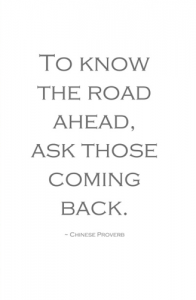Handling the Holidays: Adjusting to the Loss
For some of you, this is not the first holiday where you will be missing people you love. You “survived” the holidays last year but maybe just barely. Perhaps you feel like you can’t get in the spirit of Christmas, you feel like a desolate place and everyone around you is putting on bows and smiling. Yes, you’ve made it through one round of the holidays but that doesn’t mean this will be easy. In some ways, the second year of grief can be more difficult as the permanence of the loss begins to really sink in.
For others, this is your first Christmas and you don’t know what to do. You’ve made it through Thanksgiving and that’s huge, but Christmas and New Years are equally if not more sentimental times of family tradition and gathering. These are some of the toughest times for grieving people to navigate for many reasons. Expectations may be imposed on you that you cannot meet, you may not want to participate in various occasions for fear of falling apart, or you may just dread walking into a room alone feeling like people don’t know what to say to you.
For those of you concerned about handling the holidays, we’ve compiled some expert advice for you that really will help you plan for and work through the holidays in a healthy, balanced and prepared way.
Admit that the holidays are hard
The beginning point is acknowledging—perhaps for the first time in your grief—that you can’t do everything, and be everything that everybody expects.
 Make your plans; check them twice
Make your plans; check them twice
Sit back and look at the events you’ve been invited to and consider which ones would be the most special to you. Some things can remain the same, but not everything.
Think through your past traditions and determine where the most difficult times or days will be. Circle any significant anniversaries or special days on your calendar so that they don’t sneak up on you and so that you don’t miss them. Knowing these significant times in advance and preparing for them as they come will help you more fully be present in your grief and in the special meaning of that day.
Consider the cost of withdrawal
You might feel like avoiding people, but be careful to avoid crossing over into the place of isolation. It’s important to keep your socializing limited to what you can handle, but be careful about avoiding others all together; the cost of withdrawal is high—in damaged relationships and in lack of support. Instead of planning to avoid people, be proactive and explain what you need. Be intentional in returning their gift of friendship by participating in things they want to do as well.
Create something new
New rituals, ceremonies, observances, or routines help us mark this new chapter of life.
Consider gathering your special people around to
- sing a song and light a candle in memory of your loved one
- read a favorite story of theirs
- watch a brief slide show of your favorite pictures
- if they enjoyed cooking, bake cookies or another recipe from your loved one and share the treats with others who will enjoy them.
There are many creative and meaningful ways to honor your loved one that can become new traditions within your family. Creating a time and space for connection and remembrance will help everyone mourning the loss, not just you.
Spiritual & Physical well-being
Holidays are spiritual in their foundation so worship, reading, and prayer or meditation might help you restore balance during this season.
Nutrition—make it high in healthy content, low in calories; avoid or limit caffeine, alcohol, processed sugar and animal fat.
Exercise—try mall walking, activity leagues, sports, or health clubs, but check with your health provider first to see if they can make more tailored suggestions.
Rest—it’s best to discover why you’re not sleeping, but also remember your body knows what it needs. If you’re eating right and exercising appropriately, you might just find the sleep takes care of itself.
Reach out for assistance
Support groups or friendship communities formed around a shared loss are incredibly helpful, encouraging and safe places to share about your life and loss experience. Having a group like this to fall back on, will help you face the holidays without feeling alone.
Click here for a list of local support groups.
You are not alone this holiday season. Even though there will be moments of loneliness, there are people who will be thinking of you, wanting to help and not being sure how. You will get to a place where you are ok, but it won’t be today, and that’s the way it should be.
From us to you, we wish you a blessed and meaningful Christmas.






7 Comments
Molly, you come up with great ideas to write about. I think it is very important to recognize and accept the new normal. All those things we feel at the time are normal, don’t try to fight them, it’s ok to feel them.Thank you so much for bringing these things to light, because we can now accept them. Thanks Molly.
Molly –
Thank you for such a great blog of ideas and ways to handle the holidays after a loss. You have addressed a topic most want to avoid if not all, no one looks forward to missing someone during the holidays. I love the fact the you have included ideas for creating something new and you have address our mind, body and spirit too. Thank you for diving in, the water is deep and meaningful. Cheers, XOXOX
Hey Molly,
Thanks for sharing the practical tips on how to cope with the holidays. Dealing with grief is a process; certainly not a light switch to turn on and off. There’s not how to manual with steps because each person grief is their own. What struck me was the advice on the cost of withdrawal (not because I’m the CFO). I think in those most difficult times it’s so valuable to lean on your support group to pull your through.
I appreciate the way you hall people with your written words. It’s truly a gift.
Fitz
Holidays are so hard when loved ones are not there anymore. This will be 9 years of Christmas without my grandma and the second Christmas without my brother, and I don’t know how we made it through those times or what this Christmas will bring. I remember the things that they would do EVERY holiday, and of course notice that they are not there to do them anymore. The last 2 Thanksgivings without my brother, my sister and I had our own Thanksgiving by making our own food inviting people over and having a candlelight dinner with Casey’s photo right next to the table. I suppose that could be our new tradition. I think it’s good to prepare for the emotions that will come, if that’s possible, rather than keep trying to be strong and deny that you will show the feelings because that is when they sneak up on you. I know that with each Christmas or Thanksgiving someone if not a few of my family members will be in tears, and I think it’s best to accept and embrace that.
Thank you, Molly. Survival and growth are certainly possible through the holidays and these practical principles can help take the sting out of difficult days. We know our grief is never truly finished; it is the price we pay for loving someone so deeply. The holidays may bring a tinge of grief and sadness forever but this can be a powerful and great gift.
Becky